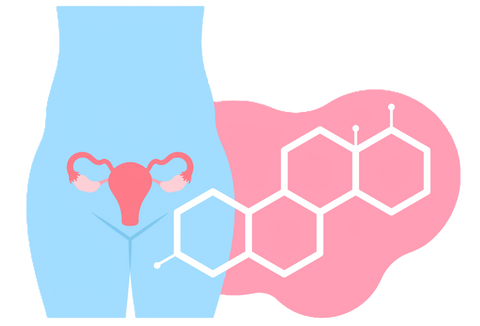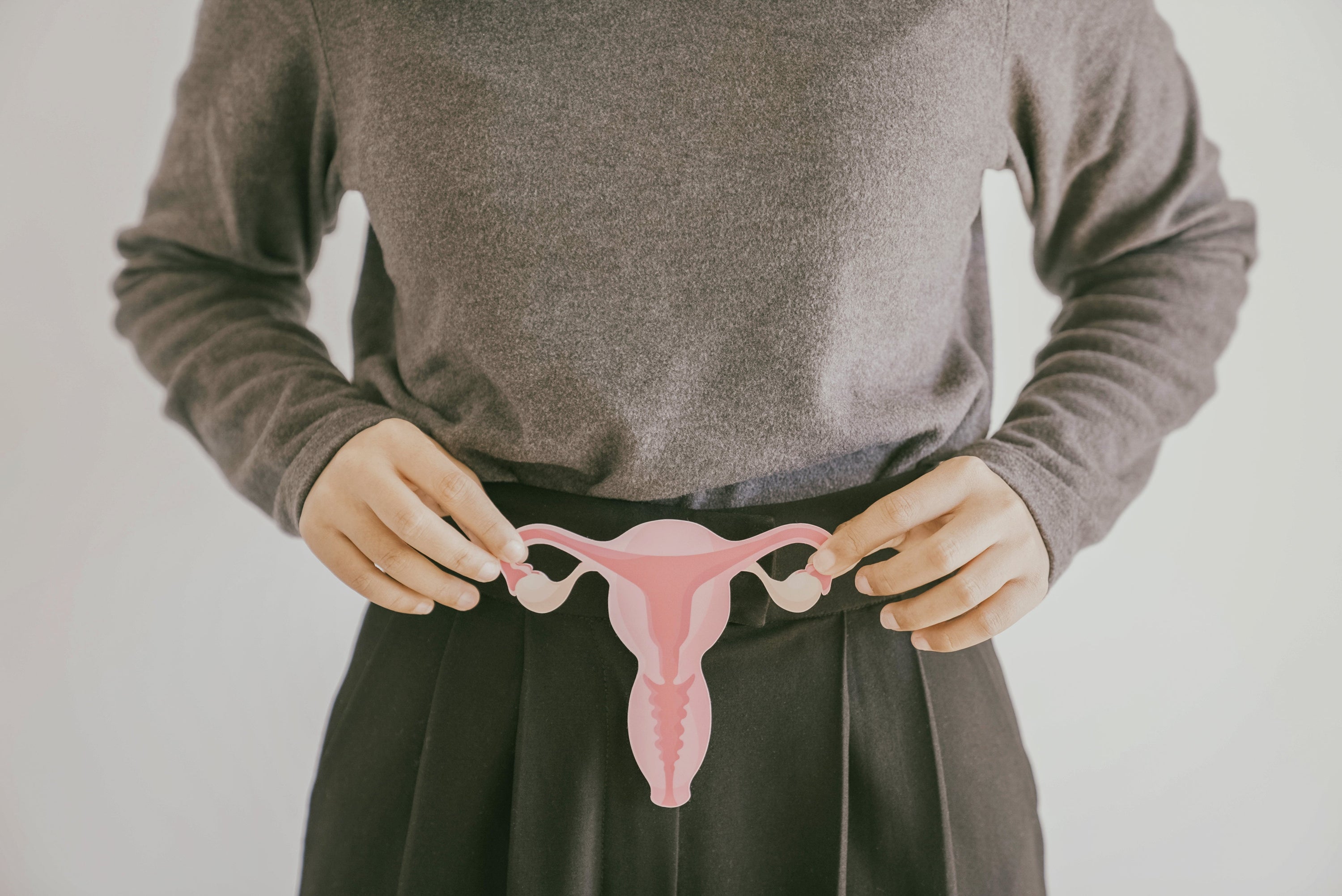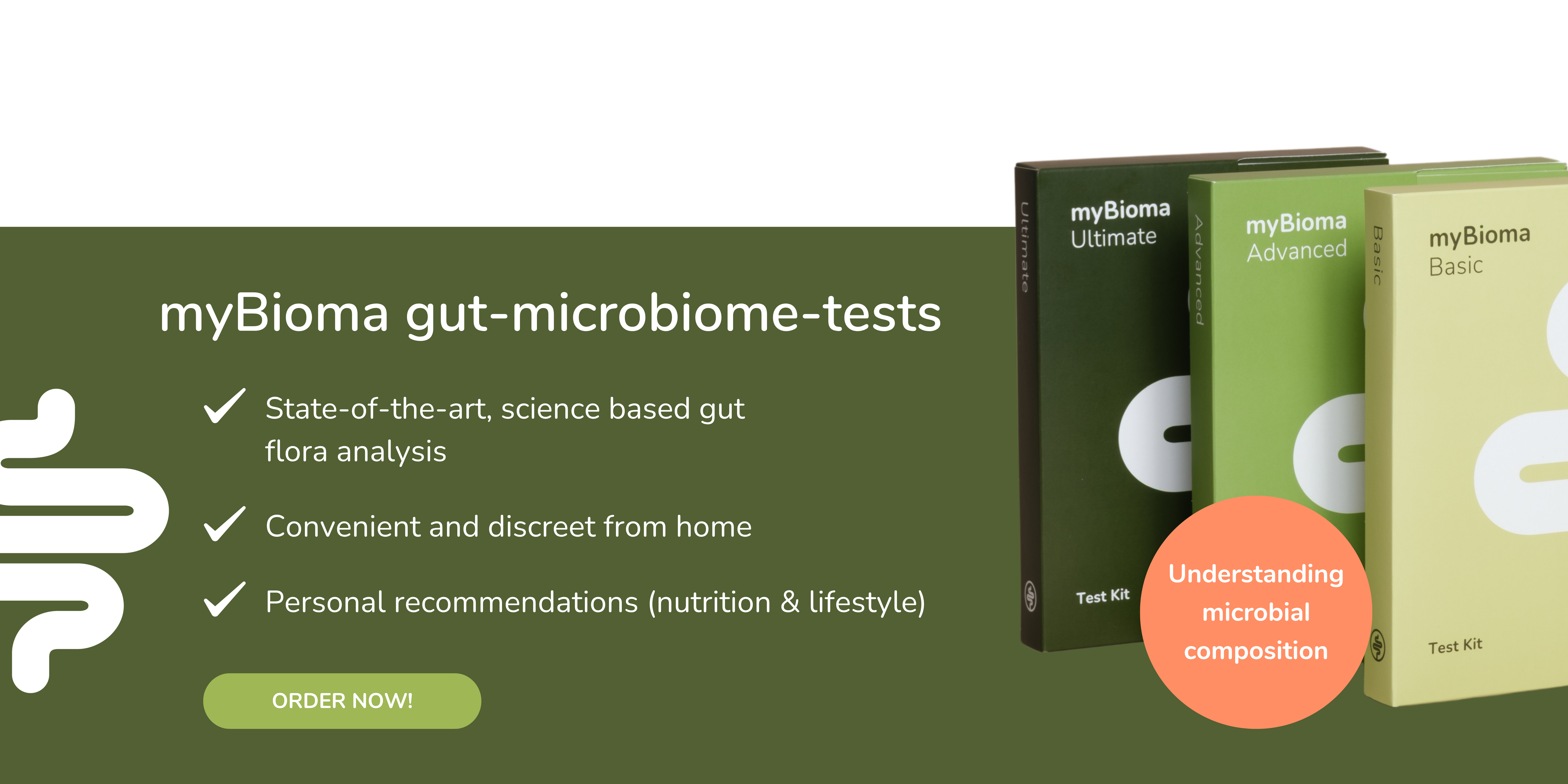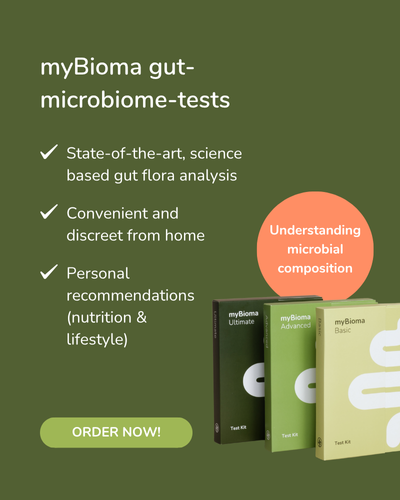While you may have heard of concepts like the "gut-brain axis" or "gut-skin axis," did you realize that the health of your gut significantly influences hormonal balance and various aspects of women's well-being?
Current research underscores the importance of acknowledging gender disparities in health concerns and diseases. Women often remain underrepresented in clinical trials, resulting in a limited understanding of the unique physiological and hormonal intricacies between genders, including variations in the composition of the gut microbiome (1).
Numerous health conditions, including osteoarthritis, heart disease, cancer, depression, and anxiety disorders, disproportionately affect more women than men. The gut microbiome plays a pivotal role in these conditions, with specific conditions such as polycystic ovary syndrome (PCOS), breast, cervical, and ovarian cancers, as well as experiences like pregnancy, menstruation, and menopause, being linked to alterations in gut microbiome composition.
Let's delve deeper into the intricate connections between gut health and women's well-being, considering the significant role that hormones play in this dynamic interplay.
Understanding the link between gut microbiome and hormonal balance
Hormones act as crucial messengers governing essential bodily processes. Recent research has shed some light on the intricate link between hormonal balance and gut health . The interplay between gut bacteria and hormones is continuous, with certain hormones being either directly produced by gut bacteria or reliant on specific metabolic by-products of our tiny bacterial inhabitants. Disruptions in the composition of the microbiome can heighten the susceptibility to diseases such as PCOS, endometriosis, irritable bowel syndrome, cancer, and lead to complications during pregnancy (1,2).
Discover the significance of the gut as a hormone factory in this insightful interview: " Gut and Hormones in Balance ".
Female sex hormones exert influence on the proliferation and virulence of bacteria. For instance, estrogens such as estriol and estradiol counteract harmful bacteria, while progesterone fosters the growth of specific bacterial strains. Elevated androgen levels, including testosterone, a hallmark of PCOS, have been associated with reduced microbiome diversity (2).
Estrogen and the estrobolome
Estrogen, a pivotal female sex hormone, not only regulates the reproductive system but also influences cardiovascular health, insulin levels, fat regulation, bone health, and memory function (2,3).
The estrobolome comprises a subset of gut microbes that produces estrogens and influences estrogen metabolism. Factors such as genetic predisposition, dietary choices, alcohol consumption, environmental factors, and medication usage, including antibiotics, can impact the composition and function of the estrobolome. An imbalance in this microbial community can impair fertility and contribute to the development of diseases such as breast cancer, PCOS, and endometriosis, while also heightening the risk of obesity, cardiovascular diseases, and osteoporosis.
The connection between the gut and estrogen is known as estrobolome.
Conversely, estrogens also have a reciprocal effect on gut health by fostering biodiversity, favoring the proliferation of beneficial bacteria while regulating the population of harmful ones. Estrogen plays a role in maintaining a robust gut barrier, influencing inflammatory responses and facilitating proper digestion (2,3).

Estrogen plays a crucial role in women's health as a pivotal hormone.
Hormonal fluctuations and their impact on the gut
Natural fluctuations in female hormonal balance impact emotional well-being, energy levels, and digestion.
The menstrual cycle and gastrointestinal problems
Estrogen and progesterone, the main regulators of the menstrual cycle, also influence digestion. Many women report cycle-dependent gastrointestinal issues like diarrhea or bloating. Despite this, research on the link between hormonal changes during the menstrual cycle and gut health is scarce, leaving many questions unanswered (1).
Pregnancy and gut health
Maintaining hormonal balance and a healthy gut microbiome are crucial for successful pregnancies and optimal baby development. Throughout pregnancy, significant changes occur in both the body and the gut microbiome, particularly in the last trimester. Hormones like estrogen and progesterone play key roles in driving these changes. Progesterone levels surge, promoting diversity within the gut microbiome, which in turn influences the newborn's immune system, preventing the development of allergies, and facilitating the transmission of beneficial bacterial strains from mother to baby (2).
Yet, the mother's microbiome not only impacts the newborn but also plays a vital role in the mother's own well-being and recovery postpartum. Disruptions in gut bacteria have been linked to pregnancy-related conditions such as depression and pre-eclampsia. Pre-eclampsia is a prevalent complication characterized by elevated blood pressure after the 20th week of pregnancy (1).
Another common complication is gestational diabetes. It involves the interplay of hormones and gut bacteria in metabolic processes, contributing to the onset of diabetes during pregnancy (2).
Menopause and gut health
During menopause, the decline in estrogen production leads to typical symptoms like hot flashes, sleep disturbances, and mood swings. This reduction also impacts the beneficial diversity of the gut microbiome, increasing the risk of osteoporosis. Specific gut bacteria, such as Prevotella sp., may contribute to maintaining bone health, while others, like Bacteroides sp., could potentially be linked to an increased risk of fractures. Probiotics have demonstrated positive effects on bone health, underscoring the importance of maintaining a diverse gut microbiome (1).
Moreover, the decrease in estrogen production during menopause increases the risk of weight gain, muscle loss, cardiometabolic problems, breast cancer, and Alzheimer's disease. Although the precise mechanisms are not fully elucidated, these findings offer new potential avenues for future therapeutic approaches (1).

The control of numerous vital processes in the body relies on the interaction between hormones and organs.
How the gut influences women’s health diseases
Women-specific health challenges involve intricate interactions, and the gut microbiome represents just one facet of this complex landscape.
Digestive issues and Irritable Bowel Syndrome (IBS)
Digestive issues such as diarrhea, bloating, and constipation are common among many women and can be linked to hormonal fluctuations. IBS, a gastrointestinal disorder characterized by symptoms like abdominal pain, bloating, diarrhea, or constipation, is more prevalent in women. While the precise cause remains unclear, potential factors such as disruptions in the gut-brain axis communication, compounded by elevated estrogen levels, may play a role. Stress, specific dietary choices, and the use of antibiotics can further exacerbate these symptoms (4).
Interested in learning more about irritable bowel syndrome? Check out our blog entries:
Living with irritable bowel syndrome – this is how you get your symptoms under controlThis is how successful the low-FODMAP diet is for irritable bowel syndrome
Mindfulness for the gut: This is how effective hypnosis is for irritable bowel syndrome
Gynecological disorders
Some diseases affecting the female reproductive organs correlate with changes in gut microbiome composition. Let's explore a few:
1. Polycystic Ovary Syndrome (PCOS) and the gut
PCOS, characterized by hormonal imbalances and ovarian dysfunction, often accompanies insulin resistance, obesity, and a heightened risk of cardiovascular diseases. PCOS patients commonly exhibit decreased diversity in their gut microbiome, characterized by declines in beneficial bacterial strains and increases in potentially detrimental ones. This imbalance may contribute to a compromised gut mucosal barrier, potentially exacerbating or initiating PCOS symptoms. Some studies suggest promising outcomes in alleviating PCOS symptoms through the supplementation of specific probiotic bacterial species (1,2).
2. Cancer and the estrobolome
Several types of cancer , such as breast, cervical, and ovarian cancers, have been linked to alterations in the gut microbiome. The estrobolome emerges as a key player in this scenario, with research indicating a correlation between elevated estrogen levels and an increased risk of breast cancer (3). Encouragingly, there is promising evidence suggesting that dietary modifications, alongside probiotic and prebiotic interventions, may aid in fighting against breast cancer (2).
3. Endometriosis and ist connection to the gut
Endometriosis, marked by the presence of uterine tissue outside the uterus, could potentially be instigated by an imbalance in the estrobolome, resulting in elevated estrogen levels. Additionally, women with endometriosis face an increased susceptibility to inflammatory bowel diseases (2).
4. Bacterial vaginosis: vaginal and gut microbiota
In addition to the gut, various parts of the body harbor their own microbiomes, including the mouth, nose, skin, lungs, and genital area. A balanced vaginal microbiome is essential for health and protection against infections.
Bacterial vaginosis, a disruption of the vaginal microbiome, is associated with complications during pregnancy, pelvic inflammatory diseases, and an increased susceptibility to sexually transmitted diseases. Bacterial Vaginosis is characterized by a deficiency of lactobacilli in the vaginal microbiome. This is, where gut health comes into play: Through the estrobolome, lactobacilli originating from the gut, which acts as a vital reservoir, can be transferred to the genital area. Studies indicate that promoting lactobacilli in the gut microbiome can positively impact individuals with bacterial vaginosis (1).
How can I improve my wellbeing as a woman?

Your well-being depends on the interaction between your brain, your hormones and your gut.
The significant influence of gut health on hormone levels and women-specific health issues also includes mental health. Conditions like depression and anxiety, which are more prevalent in women, are intertwined with the continuous communication between the brain and gut, facilitated by the vagus nerve and hormones (5).
For further insights, check out this interview: The Causes of a Disturbed Gut-Brain Connection .
Prioritizing your gut health positively impacts both mental and physical well-being. Establishing a foundation for a healthy lifestyle involves:
1. Embracing a diverse, fiber-rich diet ;
2. Ensuring adequate sleep ;
3. Implementing stress management techniques;
4. Enaging in regular exercise ;
5. Avoidance of toxins such as alcohol and cigarettes.
Empower yourself by adhering to the 5 pillars of a healthy microbiome.
A glimpse into the future: research on gut health and women's health
Recent research into the connection between gut health and women's health has revealed promising findings. While the pivotal role of the gut microbiome in the female reproductive hormone system is evident, numerous questions remain unanswered, underscoring the intricacy of these relationships (2). Here's an overview of key areas of research focus:
Probiotic therapies for women
Numerous studies emphasize the therapeutic potential of probiotics for women-specific health concerns. For instance, evidence suggests that administering specific lactobacilli and bifidobacteria in a probiotic blend can ameliorate symptoms of PCOS and mitigate both vascular dysfunction and arterial stiffness in overweight postmenopausal women. Prevotella spp. may offer protection against bone density loss following menopause. Nonetheless, determining the ideal composition of bacterial species for standalone or complementary therapies remains a work in progress (1).
The microbiome as a biomarker
In the future, the gut microbiome has the potential to serve as a biomarker for specific diseases. Utilizing targeted probiotics or fecal transplantation could address microbiome dysbiosis and potentially intervene in the progression of certain diseases (2).
Microbiome analysis in personalized medicine
In the future, therapies that take into account individual metabolism, hormone status and microbiome composition will be of particular importance and contribute to the further development of the healthcare system. The application of personalized approaches that take into account the individual characteristics of patients in the diagnosis, treatment and prevention of diseases could also be particularly promising for women-specific health problems. The analysis of the individual gut microbiome is considered an essential component of personalized medicine (6,1).
How does myBioma come into play here?
myBioma allows you to gain insights into your individual gut microbiome. Our analysis can give you interesting clues about your state of health and provide you with easy-to-understand, personalized recommendations.
Test your gut microbiome now!
By the way: Did you know that myBioma is also involved in various clinical studies as part of BiomeDx? One of the research projects is in the field of colon cancer immunotherapy in collaboration with several Austrian clinics.
References
- Siddiqui R, Makhlouf Z, Alharbi AM, Alfahemi H, Khan NA. (2022). The Gut Microbiome and Female Health.Biology;11(11):1683.
- Qi X, Yun C, Pang Y, Qiao J. (2021). The impact of the gut microbiota on the reproductive and metabolic endocrine system. Gut Microbes. 13(1):1894070.
- Kwa M, Plottel CS, Blaser MJ, Adams S. (2016). The Intestinal Microbiome and Estrogen Receptor-Positive Female Breast Cancer. J Natl Cancer Inst.;108(8):djw029.
- Layer P, Andresen V, Allescher H, Bischoff SC, Claßen M, Elsenbruch S, et.al. (2021). Update S3-Leitlinie Reizdarmsyndrom: Definition, Pathophysiologie, Diagnostik und Therapie. Gemeinsame Leitlinie der Deutschen Gesellschaft für Gastroenterologie, Verdauungs- und Stoffwechselkrankheiten (DGVS) und der Deutschen Gesellschaft für Neurogastroenterologie und Motilität (DGNM). Z Für Gastroenterol. 59(12):1323–415. DOI: 10.1055/a-1591-4794
- Breit S, Kupferberg A, Rogler G, Hasler G. (2018). Vagus Nerve as Modulator of the Brain–Gut Axis in Psychiatric and Inflammatory Disorders. Front Psychiatry.9:44. DOI: 10.3389/fpsyt.2018.00044
- Gessner A. Das Mikrobiom: Entscheidender Faktor für die personalisierte Medizin der Zukunft. Blick Wiss. 22. Juni 2018;26(35/36):76–80. DOI: 10.5283/bidw.v26i35/36.3







